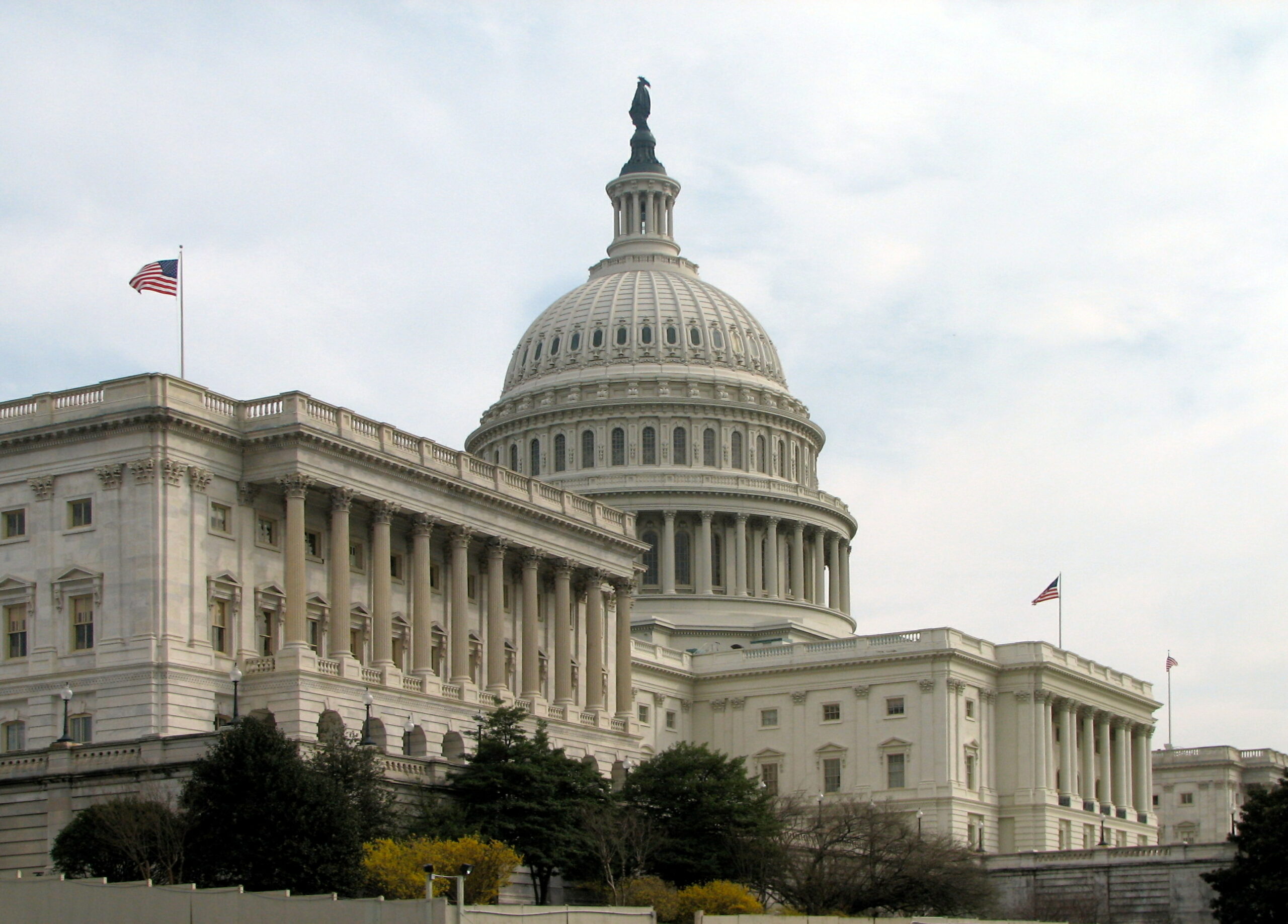Constitution
If Electoral College Ties, Biden Victory Is Nearly Impossible
If somehow the Electoral College ties, House and Senate could also be deadlocked. The House is not likely to give Biden a second term.

As in 2016 and 2020, a handful of voters in a few states will determine the outcome of the Electoral College in 2024, and the election could easily result in a tie. Since the House of Representatives is the tie-breaker for presidential elections, and Republicans currently hold a slim majority in the House, Biden has almost no path to victory in case of a tie – and congressional elections will be more critical than ever for both camps.
Five states – Arizona, Georgia, Michigan, Pennsylvania, and Wisconsin – voted for Trump in 2016 and flipped to Biden in 2020. These same five states will determine the election and could easily split between the two nominees. Should Biden win Arizona, Georgia, and Wisconsin while Trump carries Michigan and Pennsylvania, the Electoral College would tie, 269-269 (provided the two states that award electors by congressional district, Maine and Nebraska, both vote as they did in 2020).
If there is a 269-269 tie, the election will be decided by the House of Representatives, currently under Republican control. This does not guarantee a Trump victory right away, however.
First, the Electoral College results are traditionally unsealed, counted, and certified only after the new House is seated on Jan. 3, so Republicans could lose their miniscule majority before the House votes. The certification can be moved up on the calendar, but that would require the consent of a Democratic Senate, so Republicans should not count on it if Democrats have the majority after Jan. 3.
Second, the House does not vote for president by simple majority but by state. Per the 12th Amendment: “…But in choosing the President, the votes shall be taken by states, the representation from each state having one vote … and a majority of all the states shall be necessary to a choice.” Each state’s House delegation holds an internal election and then casts one vote for the winner.
Rather than count the members for each party in the whole House, we need to look at which party holds the majority of seats within 26 delegations. Our early experience with contingent elections in 1801 and 1825 established that half is not sufficient for a majority – the magic number is 26.
Republicans are currently the majority on 25 delegations and Democrats on 23, with two, Minnesota and North Carolina, evenly split. Even if Republicans were able to force a contingent election before Jan. 3, the House would deadlock 25-23-2, assuming everyone votes the party line.
Thus, November’s House elections could be just as important for securing the presidency as they are for securing a legislative mandate. Most races will not be competitive, and even most competitive races won’t flip their states’ delegations. New York will still vote for Biden no matter how many vulnerable Republicans lose there, and Alabama will still vote for Trump even with a court-ordered gerrymander adding a Democrat to their delegation.
As for the two tied delegations, Minnesota is very unlikely to change. North Carolina is getting a new map, this one gerrymandered to favor the GOP, which will flip the state’s 7-7 delegation to 10-4, giving Trump his 26th state.
With our starting point now at 26 for Trump, 23 for Biden, and one tied, there are only six states left with slim enough margins that they could decide the outcome of a hypothetical contingent election:
- Alaska. Alaska’s at-large seat is the reddest district represented by a Democrat, Mary Peltola. Democrats must hold it for Biden to win.
- Arizona. Republicans have a 6-3 majority on the delegation, but two flips could change that. Democrats are targeting AZ-01’s David Schweikert, whose finances are questionable, and AZ-06’s Juan Ciscomani, who won by about 5,000 votes in 2022. Republicans need to hold at least one of these seats.
- Maine. My beloved home state is represented by two Democrats in Congress and will not vote for Trump, but one flip could deadlock the delegation, removing it from Biden’s column. National Republicans are excited about their racecar driver recruit, Austin Theriault.
- Michigan. Democrats lead this delegation 7-6, so Republicans just need to flip one seat. They have three chances to do so: The two most competitive Democrat-held districts, MI-07 and MI-08, will be open in November, and the third, Gerald Ford’s own MI-03, is represented by freshman Haley Scholten.
- Pennsylvania. Biden’s birth state has nine Democrats and eight Republicans in the House. The GOP has tried and failed repeatedly to flip two GOP-leaning districts along the Delaware River: Matt Cartwright’s PA-08 and Susan Wild’s PA-07. The reverse is true of neighboring PA-01, represented by Republican Brian Fitzpatrick. Democrats must win two of these three to keep the Keystone State in Biden’s corner.
- Virginia. Virginia will most likely vote for Biden, but with VA-07’s Abigail Spanberger retiring, her exurban district could be in play. It is a reach for Republicans, but if they manage to flip the 7th, they will hold a 6-5 majority on the commonwealth’s delegation. Democrats need to hold this seat to keep Virginia on their side.
If you’re keeping track, you may have noticed that Biden does not have a path to 26. Democrats can sweep all of the competitive districts listed here and the House would deadlock at 25-24-1. This would prevent an immediate Trump victory but would not elect Biden. The House will be deadlocked until members cross party lines and deliver a state to the other side.
The House has until noon on Jan. 20 to make a decision. If they can’t, the vice president will become president until the impasse is resolved. But unless a faithless elector votes for the other party’s VP nominee, that election, too, will be tied. In this case, it is the Senate that votes by simple majority to break the tie. Democrats have a narrow 51-49 majority and are almost guaranteed to lose Joe Manchin’s seat in West Virginia, deadlocking the upper chamber 50-50.
This makes it even more imperative for Republicans to take the Senate, most likely by beating Jon Tester in Montana. Failing that, a deadlocked Electoral College will send the presidential election to a deadlocked House and the VP election to a deadlocked Senate. With the top two offices vacant, whoever manages to emerge as Speaker of the House takes over. Hakeem Jeffries would be more likely to become president than either Joe Biden or Kamala Harris in this scenario.
Whether they realize it or not, a few voters in five swing states, a dozen close House districts, and two Senate races will determine the direction of the country in 2024. Let us hope they choose wisely.
This article was originally published by RealClearPolitics and made available via RealClearWire.
James Erwin is a native of Yarmouth, Maine, and former staffer for Senator Susan Collins. He works on free speech and tech policy in Washington, D.C.
-

 Executive4 days ago
Executive4 days agoSecret Service chief gets no solace
-

 Civilization5 days ago
Civilization5 days agoBiden drops out of race
-

 Executive2 days ago
Executive2 days agoWaste of the Day: Louisville Taxpayers Pay Nearly $600,000 For Empty Building’s Maintenance, Security
-

 Guest Columns4 days ago
Guest Columns4 days agoFear Itself: Democrats’ Favorite Strategy Caused Their Current Chaos
-

 Executive3 days ago
Executive3 days agoWhere is Joe Biden – or Jill?
-

 Executive1 day ago
Executive1 day agoWaste of the Day: Throwback Thursday: Cities Used Crime Prevention Funds on Soccer Games, Paper Shredding
-

 Civilization4 days ago
Civilization4 days agoBuild Iron Dome in the United States To Prepare for Israel’s Worst Day
-

 Executive2 days ago
Executive2 days agoFacile and politically motivated suggestions













